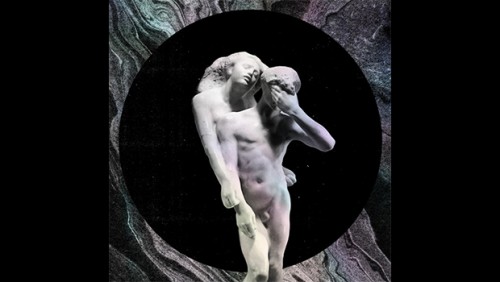By Michael Lello
There are a handful of bands in rock history that have made high-minded and uncompromising music and still achieved arena-level acceptance. Montreal’s Arcade Fire, a band that sees rock ’n’ roll as a serious medium for artistic expression, is one of those bands. On its fourth album, the double-disc “Reflektor,” the collective has aimed higher than ever, with dense, groove-laden music and outwardly philosophical lyrics — and Arcade Fire hits the mark in every measurable way.
While 2010’s “The Suburbs” was a study in introspection, “Reflektor,” especially its first disc, is big and broad and full of near-religious proclamations. The music is more danceable than any Arcade Fire album to date, infusing New Wave and indie rock with Haitian beats, including guest percussion and saxophones.
The album opens with the title track, an irresistible chunk of movement. “It’s just a reflector,” frontman Win Butler sings on the darkly triumphant chorus, and his wife Regine Chassagne echoes him. The dark and sinewy “We Exist” follows, built on a New Order/Depeche Mode bassline and a deep drum groove. Those simple elements, combined with the insistent vocal melody, create an epic track greater than the sum of its parts. It’s a study in restraint, unlike most of “Reflektor,” which is a “more is more” album.
“Here Comes The Night Time” springs from Carnival percussion before settling into a laidback groove. “It starts in your feet/ And it goes to your head/ And if you can’t feel it/ Your roots are dead,” the band sings, before sliding back into the percussive party. “Normal Person” is a strong rocker, littered with trashy guitars, and it includes what might be Arcade Fire’s mission statement: “If that’s what’s normal now/ I don’t want to know.”
Following the jangly and driving “You Already Know,” Arcade Fire ends the first disc with the punky and defiant “Joan Of Arc.” The Haitian-born, French-speaking Chassagne – featured more heavily on this album – playfully sings “Jeanne d’Arc, ah ooh” on the chorus.
Disc two opens with the drumless “Here Comes The Night Time II,” quiet and circumspect and nothing like its disc-one namesake. It sets the tone for the album’s second half, which can be described as the self-examination – the reflection? – after the first disc’s bacchanalia.
“Awful Sound (Oh Eurydice)” is vaguely Lennon-esque, complete with a sugary chorus and a big Ringo drum fill. “Take all your pain/ And just put it on me, so you can breathe,” Butler sings.
“It’s Never Over (Hey Orpheus)” offers the type of sparkly synths employed my electro pop groups like M83 and Chvrches in its intro before big and dirty guitar and bass intrude. “Hey Orpheus!” the band sings in union, and “Wait until it’s over, wait until it’s through.” The bottom drops out, and Butler continues to drive home the more direct and personal direction of disc two: “Seems like a big deal now, but you will get over/ When you get over, and when you get older/ You will discover/ It’s never over.” The song is one of “Reflektor’s” most emotionally arresting moments.
After the groove-driven “Afterlife,” Arcade Fire closes the record with the lengthy, loose dreamy and delicate “Supersymmetry.” The song concludes with three minutes of noise.
Arcade Fire, which wear stage costumes, sometimes sing in French and have released two consecutive two-disc albums, make themselves an easy target for ridicule. They are self-indulgent, and that’s not debatable. But that self indulgence is a serious focus on creating something honest and different, something that means something. It’s what set U2, R.E.M. and David Bowie apart, and it’s what makes Arcade Fire, four albums into its career, worthy of similar adulation.
Rating: 79/81




Leave a Reply